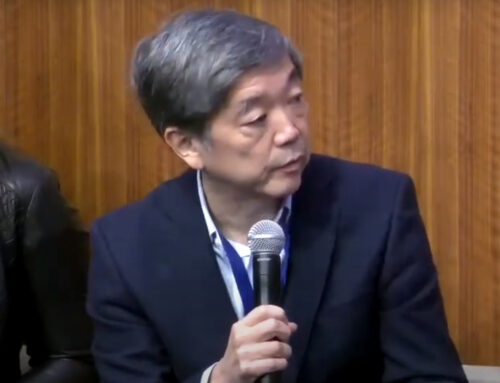Bringing security, trust, and seamless collaboration to decommissioning.
On the 11th of December 2023, the Centre of Decommissioning Australia (CODA) hosted a webinar on “Improving Decommissioning Outcomes with Blockchain and AI”. Leading the discussion as guest speakers were Lighthouse Futures Founder and Director, Shaun Deverson, and Kenja’s very own Business Development Lead and Project Manager, Matthew Kronick.
The webinar offered a look into the Blockchain and AI platform solution that the two entities are co-developing and how it assists with the verification hurdles found in the decommissioning space. Matthew begins by listing down the three elements often found in decommissioning which are efficiency, compliance, and verification. He then shares that the most pressing issues are the queries of sustainability and proof of adherence to compliance and regulation standards.
With those in mind, the two entities are collaborating to develop a platform that will provide security, trust, and collaboration to the decommissioning space through its various features. Services such as workflow, tasking, commenting, basic prompting, and file uploading will deliver seamless collaboration. Its intuitive and visual UI will grant users full traceability of processes to encourage trust. Finally, compliance with NIST 1.1 Cybersecurity Framework, Blockchain, and ACL will guarantee enterprise-grade security as well as proof of data usage and ownership.
Matthew goes on to explain how the platform solution leverages the advantages of Blockchain and AI to increase efficiency, ease compliance concerns, and assist with verification. Through the use of a local corpus with the platform as the container, the AI will be able to assist users with any queries by pulling information from the company’s own dataset. This has the added benefit of the AI including sources from the local corpus for manual verification if necessary.
As the local corpus will be made up of the files the company uploaded, the information that the AI derives from them will have already been verified. However, for extra security, the platform also utilizes Blockchain technology so that every file will have a recorded and immutable history trail to look back on. This feature will allow users to check the history of each file such as the original uploader, the editor/s, and the relevant dates through a tangible and visual UI.
Using a prototype version of the platform, Matthew then gives a step-by-step presentation of how the solution would work. (The demonstration can be viewed here.) He also shares that an important security measure is being built into the AI so that, once completed, it will have ACL awareness to ensure any information given to users comply with respective access rights.
Finally, Shaun announced that the intention of Lighthouse Futures and Kenja is to customize the platform for each client so that it becomes bespoke to their organizations. The platform, therefore, is more of a bottom-up solution that is very scalable with an intuitive UI that requires minimal training to use. Any training or support that is needed, will be provided for by Kenja.
Lighthouse Futures
Founded by Director Shaun Deverson, Lighthouse Futures is an Australian advisory firm that works in the ESG, circular economy, blue economy, and transition space. The company aims to optimize humanity and the environment’s future, taking a systemic and systematic approach in their work to ensure the places they create to invite change are contextually rich and fit for purpose.
Kenja K.K.
Founded by CEO Ted Katagi, Kenja is a Japanese technological company for Enterprises. The company provides security, trust, and seamless collaboration through its AI platform, which also serves as a local corpus. As a Secure Collaboration Container, Kenja’s AI platform enables the option to pull data solely from the local corpus to drive the risk of hallucinations down.





